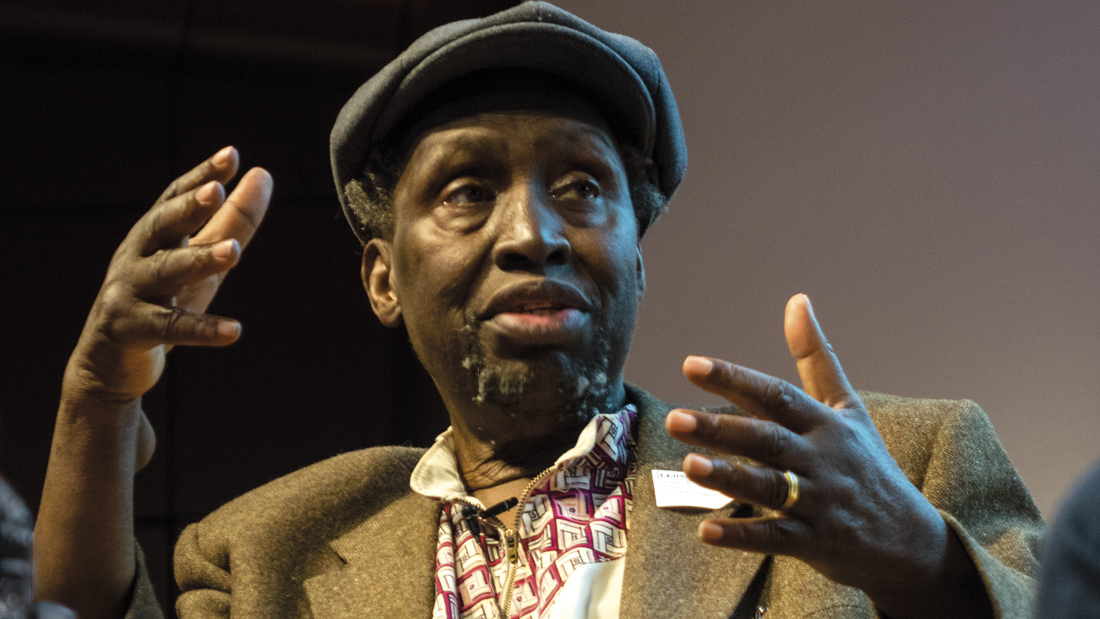NGŨGĨ WA THIONG’O: THE PEN THAT LIBERATED A CONTINENT
EoK Reports | Editorial
Books, Plays and Writings That Defined a Literary Giant’s Legacy
In the rich and restless history of African literature, few figures loom as large or as unflinchingly bold as Ngũgĩ wa Thiong’o. The trailblazing Kenyan author, playwright, scholar, and activist redefined African storytelling, turning the written word into a weapon of cultural pride, resistance, and social revolution.
For more than sixty years, Ngũgĩ’s literary work was a mirror to Kenya’s soul, a hammer against colonial legacies, and a beacon for a future anchored in African identity. His unwavering belief in the power of indigenous languages to restore dignity and memory made him not just a literary icon but a symbol of Africa’s unfinished decolonial dream.
Born James Ngugi in 1938 in Kamĩrĩĩthũ village, Limuru, Ngũgĩ rose from the shadows of colonial occupation into the heart of Kenya’s intellectual and political awakening. His early education at Makerere University in Uganda and later at the University of Leeds in the UK exposed him to global liberation thought, sharpening his pen into a tool of radical introspection.
But it was not just what he wrote — it was how and in which language he chose to write.
FROM ENGLISH TO GIKUYU: A RADICAL TURN
Ngũgĩ’s earlier works, like the celebrated Weep Not, Child (1964) and The River Between (1965), were written in English — a colonial inheritance he would later reject. In the mid-1970s, inspired by the cultural disconnect between Western languages and African realities, he made a historic shift: he abandoned English as a literary language in favor of his native Gikuyu.
This act was more than symbolic. It was revolutionary.
In his landmark essay collection Decolonising the Mind (1986), Ngũgĩ argued that language is the carrier of culture, memory, and identity. To reclaim Africa’s future, he insisted, its people must first reclaim the tongues their ancestors spoke. This decision would see him imprisoned in 1977 for his politically charged play I Will Marry When I Want, co-written with Ngũgĩ wa Mirii and staged by villagers in Kamĩrĩĩthũ. While in detention, he wrote his first Gikuyu novel, Devil on the Cross, on toilet paper.
A CANON OF RESISTANCE AND REBIRTH
Ngũgĩ’s legacy spans a vast and diverse body of work:
🖋️ Novels
From the hopeful innocence of Weep Not, Child to the sweeping satire of Wizard of the Crow (2006), Ngũgĩ chronicled Kenya’s colonial wounds, post-independence disillusionment, and the stubborn resilience of its people. His feminist-epic The Perfect Nine (2020) brought Gikuyu mythology to the global literary stage, even earning a spot on the shortlist for the International Booker Prize.
🎭 Plays
Ngũgĩ used theatre not just to entertain but to agitate. His works like The Trial of Dedan Kimathi and I Will Marry When I Want brought Kenya’s liberation heroes and postcolonial contradictions to life — often performed by and for the very communities whose struggles they dramatized.
🧠 Essays and Memoirs
In Detained: A Writer’s Prison Diary, Dreams in a Time of War, and Wrestling with the Devil, Ngũgĩ offered searing reflections on personal suffering and the broader costs of speaking truth to power. His essays in Homecoming, Moving the Centre, and Secure the Base read like intellectual blueprints for cultural reclamation.
👶 Children’s Books
With titles like Njamba Nene and the Flying Bus and The Upright Revolution, Ngũgĩ also nurtured a younger generation, planting seeds of pride, imagination, and African identity in young minds.
A GLOBAL LEGEND ROOTED IN AFRICA
Ngũgĩ’s influence extended well beyond Kenyan borders. Translated into dozens of languages, his works have become staples in postcolonial studies, African literature curricula, and global human rights discourse. He lectured around the world and was frequently tipped for the Nobel Prize in Literature — a recognition that, despite never coming, never diminished his stature among the world’s greatest writers.
Even in exile — first in Britain, later in the United States — Ngũgĩ remained anchored in the struggles and hopes of Africa. He called for a Pan-African cultural renaissance, a world where African knowledge systems, languages, and stories are not just preserved but celebrated as part of humanity’s collective heritage.
A LEGACY INKED IN FIRE
Today, Ngũgĩ wa Thiong’o stands as an immortal figure — not only for the richness of his storytelling but for the defiant integrity of his vision. He taught generations that to write is to resist, that language is political, and that true liberation begins in the mind.
In his words:
“Our lives are a battlefield on which is fought a continuous war between the forces that are pledged to confirm our humanity and those determined to dismantle it.”
Ngũgĩ chose his side — and with every book, play, and essay, he fortified it.
SELECTED WORKS
📚 Novels
Weep Not, Child (1964)
A Grain of Wheat (1967)
Devil on the Cross (1980)
Wizard of the Crow (2006)
🧾 Memoirs
Detained (1981)
Dreams in a Time of War (2010)
Wrestling with the Devil (2018)
🎭 Plays
The Trial of Dedan Kimathi (1976)
I Will Marry When I Want (1977)
✍️ Essays
Decolonising the Mind (1986)
Moving the Centre (1993)
Secure the Base (2016)
---
Long live the legacy of Ngũgĩ wa Thiong’o — the writer who dared to dream in Gikuyu and made the world listen.
---
To Power Our Newsroom:
M-pesa Paybill No: 4103959
Account: EoK
---
Email Us: editonekenya@gmail.com






Comments
Post a Comment
Editing to the best version!